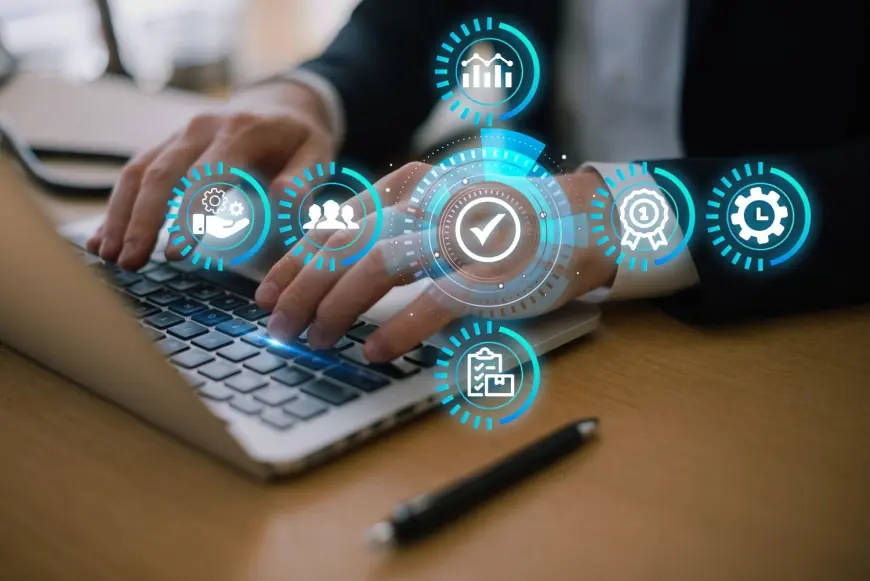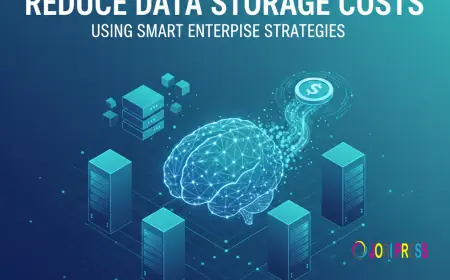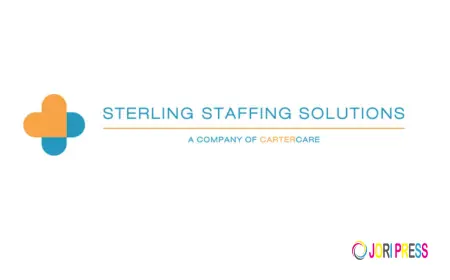Tron Unveils AI‑Driven Smart Contracts at Nasdaq – A New Era for Web3
Tron launches AI-driven smart contracts at Nasdaq, signaling a new era for Web3. Discover how smart contract development companies and services are evolving to deliver intelligent, adaptive blockchain solutions for startups and enterprises.

On July 24, 2025, Tron Inc. officially rang the opening bell at Nasdaq, unveiling its rebranded corporate identity and announcing the launch of AI‑driven smart contracts. This milestone marks a strategic pivot positioning Tron at the intersection of decentralized finance, blockchain automation, and artificial intelligence. For startups and enterprises evaluating blockchain strategies, this development opens new avenues for collaboration with smart contract development companies and specialized smart contract development services that can bridge AI and Web3 infrastructure.
The Nasdaq Event: Signaling Institutional Web3 Integration
Tron’s Nasdaq debut followed a reverse merger with SRM Entertainment, resulting in a $100 million capital infusion geared toward integrating blockchain utility with institutional finance CoinCentral+2CoinCentral+2OKX TR+2StockNews.AI+3AInvest+3AInvest+3Coinstelegram+5Wall Street Journal+5Axios+5. Rebranded under the ticker TRON (effective July 17, 2025), this public listing reflects a deliberate effort to enhance regulatory alignment, brand visibility, and corporate credibility StockNews.AIThe Cryptonomist.
Beyond symbolic resonance, Tron revealed its strategic transition toward AI‑driven smart contracts, adaptive governance, and renewed tools focused on developer growth and ecosystem automation StockNews.AI+3OKX+3AInvest+3. The announcement emphasized Tron’s ambition to serve as a bridge between mainstream finance and decentralized innovation.
AI‑Driven Smart Contracts: What This Means for Developers
Tron’s introduction of AI‑enhanced smart contract systems signals a shift from fixed logical flows toward adaptive contract execution. These contracts can integrate machine intelligence to automate governance, optimize transaction logic, and anticipate environmental variables in real time.
For enterprises exploring blockchain integration, the promise of intelligent smart contracts means streamlined operations, automated compliance features, and dynamic behavioral logic. To achieve this, collaboration with firms offering AI‑integrated smart contract development services becomes indispensable. These firms must combine blockchain engineering with machine learning capabilities, secure oracle design, and on‑chain/off‑chain orchestration.
The Role of Smart Contract Development Companies in the New Web3 Landscape
To realize Tron’s vision of intelligent automation, experienced development companies become critical partners. These firms assist in translating enterprise requirements into secure, robust smart contract infrastructure—especially when AI capabilities are involved.
A mature development firm delivers contract architecture design, hybrid AI‑blockchain logic, interactive frontend integration, Oracle frameworks, and auditing. On Tron’s platform, that demand is even greater: firms must craft AI‑capable contract templates, integrate on‑chain triggers with off‑chain model inference, and deliver tools that support continuous updates and governance oversight.
These services now include AI governance advisory, developer SDKs tailored for Tron, and monitoring tools for prediction-driven contract behavior. For businesses, partnering with such firms unlocks the ability to build transactional applications that dynamically adapt to usage patterns, decentralized governance decisions, and evolving data streams.
Infrastructure and Ecosystem Strength: Tron in 2025
In mid‑2025, Tron’s ecosystem continues to scale robustly. The network hosted over 80 billion USDT in supply, growing 41% in the first half of the year, and processed more than $20 billion daily in stablecoin transfers Axios+14eng.ambcrypto.com+14AInvest+14. Total on‑chain revenue reached nearly $1 billion in Q2, with more than 784 million transactions processed, positioning Tron among the top networks by volume cryptoslate.com+1OKX+1.
This transaction throughput underpins the platform’s suitability for AI‑enabled smart contracts that require fast execution, high scalability, and minimal latency. For development teams building dApps and services on Tron, this growth signals consistency in throughput, network stability, and opportunity for wide scale adoption.
AI‑Driven Smart Contracts: Technical Architecture and Implications
Building AI‑enabled contracts on Tron requires a layered architecture integrating blockchain determinism with probabilistic inference. At the core are contract templates enhanced with AI logic oracles—interfaces enabling contracts to query machine‑learning decisions verified for compliance and security.
Above that is a governance mechanism—on‑chain voting or multisig frameworks—that approves AI‑suggested updates. Meanwhile, off‑chain inference infrastructure performs model execution against real‑world or enterprise data. Smart contract developers must design modular systems ensuring deterministic output while benefiting from intelligent automation.
For enterprises, such architecture enables contracts that adapt dynamically to market conditions, performance metrics, or regulatory triggers. Smart contract development firms help design this architecture, ensuring seamless interaction between on‑chain logic, AI inference, and governance workflows.
Security and Risk Considerations
Integrating AI with smart contracts introduces complexity in security management. AI inference can generate behavioral paths that are hard to foresee. Development companies must include runtime monitoring, explainability tools, and verifiable logic constraints to ensure contracts remain safe and auditable.
Moreover, AI logic must not compromise determinism—contracts must remain predictable and verifiable even if decisions come via machine learning models. Experienced firms deploy layered testing frameworks, adversarial simulation, and formal verification where possible. These practices are essential to preserve trust as Tron moves toward intelligent, self‑optimizing contracts.
Business Applications Enabled by Tron’s Innovation
The convergence of Tron’s scaling infrastructure and AI‑driven smart contracts unlocks novel opportunities across industries.
In DeFi, lending and liquidity protocols can dynamically adjust interest rates, risk thresholds, and collateral ratios based on real‑time data feeds and predictive models. In gaming and entertainment, Tron’s entertainment roots enable smart contracts to adjust rewards, content drops, or user engagement rules based on behavior analytics or tokenomics.
For enterprise automation, contracts can react to supply chain events, regulatory changes, or audit triggers—automated through AI‑enabled logic while anchored in blockchain transparency.
Smart contract development firms help businesses prototype these systems by combining Tron’s contract layer with AI oracles, governance models, and upgradeable frameworks.
Commercial Strategy: Tron Beyond Technology
Tron’s Nasdaq-rebranded presence transforms perception—it is no longer seen only as a decentralized network but also as a capital-enabled company with treasury strategies and institutional visibility AInvest+2OKX+2OKX TR+2. Tron Inc. holds a large TRX token treasury, with plans to stabilize token value and build long-term shareholder value OKX TR+3Coinstelegram+3StockNews.AI+3.
This transition creates new expectations around regulatory compliance, audit transparency, and accountable governance. Smart contract development companies working with Tron ecosystem participants must align their services with institutional-grade standards, including verified tokenomics contracts, transparent code audits, and compliant governance designs.
The Future of Smart Contract Development Services in the Tron Era
As Tron moves beyond simple contract automation into AI‑empowered logic, the ecosystem demands new classes of development services. Companies in this space are evolving to offer AI‑augmented contract builders, AI‑based audit pipelines, real‑time monitoring agents, and governance integration frameworks that align with enterprise and regulatory norms.
Startups and enterprises exploring Tron-based solutions now can engage firms that specialize in building AI‑connected contract systems, capable of learning, adapting, and optimizing over time within a framework of governance and security.
These firms are poised to deliver value not through traditional contract deployment alone, but by equipping organizations with adaptive automation tools, continuous security validation, and hybrid systems that balance AI flexibility with blockchain reliability.
Conclusion: Navigating the Dawn of AI‑Enabled Web3
Tron’s unveiling of AI‑driven smart contracts at Nasdaq symbolizes a pivotal moment in the evolution of Web3. It reflects a maturing ecosystem bridging traditional finance and blockchain, while leapfrogging into intelligent decentralized automation.
For startups and enterprises, the opportunity lies in leveraging smart contract development companies capable of weaving AI, governance, and scalable blockchain together. Whether designing DeFi innovations, enterprise automation, or regulatory-driven dApps, partnering with providers that understand both Tron’s architecture and AI integration is essential.
As Web3 enters this new era, development firms that can deliver secure, adaptive, and scalable smart contract services will be the engines driving adoption. Tron’s strategic pivot and institutional presence mark the beginning—not the end—of a broader transformation in how contracts are written, executed, and evolved.
What's Your Reaction?
 Like
0
Like
0
 Dislike
0
Dislike
0
 Love
0
Love
0
 Funny
0
Funny
0
 Angry
0
Angry
0
 Sad
0
Sad
0
 Wow
0
Wow
0














































